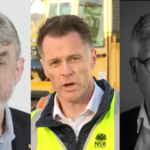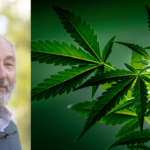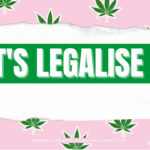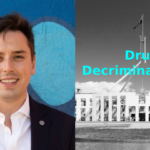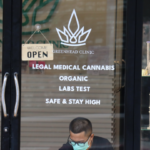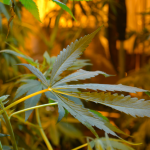NSW Parliamentary Inquiry Recommends Immediate Steps Towards Decriminalising Cannabis
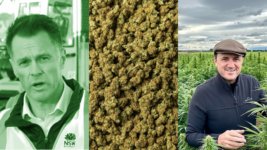
Despite NSW premier Chris Minns’ stated refusal to progress drug decriminalisation laws in this state, the NSW parliamentary committee inquiry into the impact of the regulatory framework for cannabis in NSW, has recommended steps towards the decriminalisation of the illegal psychoactive plant, with a view to achieving the end goal, which is the “complete legalisation of adult use” of weed.
Chaired by NSW Legalise Cannabis MLC Jeremy Buckingham, the Portfolio Committee No. 1 – Premier and Finance released its interim report on 31 October, ahead of the four day NSW Drug Summit, which has since held its regional sittings in Griffith and Lidcombe, with its final two days to take place on Gadigal land in Sydney next month.
But the word is that the NSW Labor government is trying to undermine the event as it drowns it in secrecy.
In his opening forward to the inquiry interim report, Buckingham makes clear that for decriminalisation “to be realised, bold steps must be taken”, and he adds that “changes to the regulatory framework are introduced in a way that does not exacerbate cannabis-related harms and, crucially, builds community support for reform”.
So, the committee has produced a pathway to reform that is staged, and it advises ought to be commenced this parliamentary term. “This framework should begin with a relaxation, but not elimination, of the criminalisation of cannabis.” And while it doesn’t require commitment to decrim or legalisation, its outcomes should persuade the community to support both options along the way.
Significantly lower cannabis criminality
The chief recommendation made by the seven Legislative Council committee members, which include NSW Greens MLC Cate Faehrmann and Labor MLC Stephen Lawrence amongst its members, was an omnibus suggestion that details key measures that will see this state embark upon the gradual decriminalisation of cannabis, so that the plant can ultimately be liberated and legalised.
The first part involves the NSW quantity-based sentencing regime, which is in part contained in schedule 1 of the Drugs Misuse and Trafficking Act 1985 (NSW) (DMT Act), as it lists over 200 illegal drugs, plants, precursors and reagents and their various quantities – small, traffickable, indictable, commercial and large commercial – that translate into correspondingly steeper penalties.
The committee considers the quantities pertaining to cannabis are too low, especially in regard to small and traffickable quantities.
Further, the maximum penalties relating to the offence of drug possession for personal use when it comes to cannabis, under section 10 of the DMT Act, currently see those charged liable to up to 2 years imprisonment and/or a fine of $2,200, but this ought to be made into a fine-only offence or if prison must apply, the maximum gaol time should be limited to 3 months at the most.
The committee calls for a change to cannabis offences, so that the non-commercial supply or the gifting of the herb is treated as possession, as well as removing the provision of deemed supply, under section 29 of the DMT Act, from the cannabis regime, as it sees those found with more than a traffickable amount of the plant charged with supply, regardless of whether it’s for personal use.
Further, the call is for limiting police ability to search people for small quantities of pot, ensure the state’s cannabis cautioning scheme has a presumption towards diversion, an on-the-spot fining system for a range of minor cannabis offences, as in South Australia, as well as police ending the targeting of cannabis and the trialling of nonenforcement of cannabis possession in certain areas.
The final key reform as part of this agenda is the provision of a defence against a charge of cannabis driving, when the motorist caught uses prescribed medicinal cannabis, while the second overall inquiry recommendation is that the NSW government monitors and evaluates the implementation of these provisions and reports back to parliament after 12 months of enactment.
Domestic cannabis trends
The NSW parliamentary inquiry is occurring on the back of global changes in attitudes to the cannabis plant that has led to 24 US states, along with the capital of Washington DC, having legalised recreational cannabis, while the entire nations of Uruguay, Canada, Thailand and Malta have all rolled out various legalised and regulated models of adult use.
The NSW parliament cannabis interim report further relates that the plant has been outlawed in NSW for a century. Yet, this all changed in 2016, when the Turnbull government legalised the commercial cultivation, manufacture and supply of medicinal cannabis nationwide. This medicine requires a script, and after a slow start, over one million have been issued thus far.
The changes being flagged by the NSW parliamentary committee in regard to the adult, or recreational, use of the plant have had a local precedent to follow since the Australian Capital Territory, which is located entirely within the borders of NSW, decriminalised the personal possession and use of cannabis in January 2020.
The measures in the capital allow a person to possess up to 50 grams of dried cannabis or 150 grams of the fresh herb, the growth of up to two plants per person and a household limit of four plants, as well as the conscience-free use of the drug at home.
The National Drug Strategy Household Survey 2022–2023 outlines that cannabis is the most popular illicit drug in this country and across the globe, with 41 percent of all people in Australia over the age of 14 having tried the psychoactive substance during their lifetime, with 11.5 percent of them having used it over the last 12 months, which has been at a relatively steady rate going back decades.
However, despite changing attitudes and a range of more permissive regimes in regard to cannabis in jurisdictions like the ACT and SA, the Illicit Drug Data Report 2020-21 provides that cannabis arrests have continued to grow over the last decade to 66,285 arrests in 2020-21, and the vast amount of these arrests, or 90 percent of them, have nothing to do with supply, but are for personal possession.
In NSW, where the cannabis cautioning scheme allows state police to issue those found in possession of a personal amount of cannabis with up to two warnings prior to arrest. However, the NSW Bureau of Crime Statistics and Research (BOCSAR) has found that officer discretion results in 12 percent of Aboriginal adults being issued a caution compared with 44 percent of non-Indigenous adults.
Legal eagle agrees the time is now
Former NSW Director of Public Prosecutions Nicholas Cowdery KC told the parliamentary cannabis inquiry earlier this year, that “there is consistent evidence that decriminalisation doesn’t encourage cannabis use or increase cannabis taking in the community,” and he added that in fact the opposite is true, as decriminalisation opens up pathways to treatment.
Representing the NSW Council for Civil Liberties at the inquiry, Cowdery, the longest serving NSW DPP, added that his organisation was further concerned about the impact that NSW cannabis laws are having upon “the unacceptably high level of First Nations people in custody and the general overpolicing of First Nations people in NSW.”
When Sydney Criminal Lawyers put it to Cowdery in April that legal practitioners speaking out about drug law reform tend to be from the defence, rather than the prosecutorial, side of the courtroom, the former NSWCCL president advised that he’d been a barrister focused on criminal law for 25 years prior to shifting his position in court in 1994 and his views on drug law reform began to form in 1968.
Drug Summit Mark II
On the prospects of the currently underway NSW Drug Summit, Cowdery maintains that decriminalisation with consistent quantities for personal use, the removal of criminal profits from the drug market, reducing harms for problematic use, the rollout of pill testing, ending strip searching and sniffer dog use, as well as the specific concerns of First Nations people should be on the agenda.
The legal heavyweight outlines that the key issue hampering the implementation of drug reform in this state needs is the saviour complex that many politicians are inflicted with that results in them considering they need to save the community from illegal drugs, which is false. He adds that the layers of criminalisation illicit substances are wrapped in are in no way improving community safety.
“Here we meet an uncomfortable (for many) fact: that a huge proportion of illicit drug users are not dependant or addicted,” the former NSW Director of Public Prosecutions said. “They use by choice and unproblematically for the most part. They deserve to be heard as well.”
“While boosting support services for problematic users is a laudable aim, many just want to have a lawful choice,” Cowdery ended.


